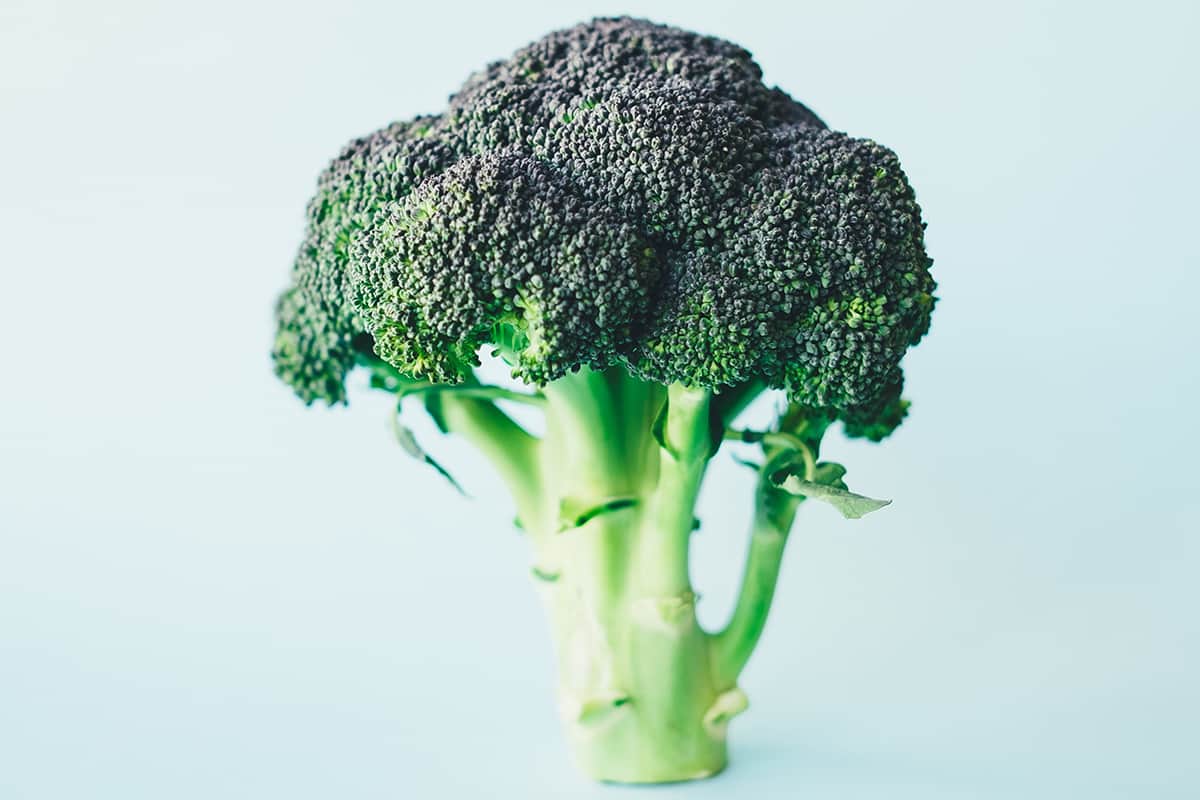The Best Foods For Your Skin in Midlife

Skincare is a multi-billion dollar industry that primarily targets women—especially as they age. Expensive products and procedures are presented as the sole way to target the aging skin concerns of midlife women. There is even a new crop of skincare brands targeting women in menopause.
But what if the ingredients to support healthy, glowing skin are found in your kitchen? If skin is considered an outward presentation of inner health, it makes sense to start with your diet.
Menopause and Skin Changes
Acne, blotchiness, and uneven skin tone are a part of puberty, but it’s just as common to experience skin changes in midlife around menopause. Hormonal changes are the common thread. Just as your sex hormones shift during your teenage years, they dramatically change as you move into midlife. These shifts affect the entire body, including your skin.
How Does Skin Change in Midlife?
Dryness
Just like menopause creates vaginal dryness, the skin on your face and body can experience similar changes. Why? Estrogen stimulates oil and collagen production, both of which support moisture and firmness. As estrogen production drops, oil production slows down, and impairs the moisture barrier. Dry skin also leads to an increase in the appearance of fine lines and wrinkles.
Breakouts
If you are suddenly experiencing acne patterns that matched your breakouts at age thirteen, you can again blame that hormonal shift. As estrogen drops, androgens like testosterone that are known triggers for breakouts remain stable. Some women may also be genetically predisposed to produce more androgens, further upsetting this balance. These breakouts tend to show up in areas considered the hormonal regions: jaw, chin, and around the mouth.
Eczema flares
Eczema is a condition where patches of skin become inflamed, itchy, red, cracked, and rough. Eczema is possibly related to changes in skin moisture or the reduced activity of the immune system as you age.
If you are prone to eczema, you may experience worsening flare-ups as you move into menopause. Eczema can show up anywhere on the body and can be incredibly uncomfortable, even exacerbating insomnia due to the discomfort.
Can Food Help Repair Aging Skin?
You don’t have to spend a small fortune to improve the health of your skin. Focus on your diet as an essential first step in supporting your skin. Adding nutrient-rich foods can help boost the body’s ability to repair and strengthen the skin.
At the same time, consider food sensitivities that may be exacerbating acne and eczema. While an elimination diet or testing is the gold standard for identifying food sensitivities, you can start boosting skin health by focusing on foods known to promote healthy, radiant skin.
The Best Foods for Skin Health
Healthy fats
Essential fatty acids like omega-3 fatty acids support healthy oil production to keep your skin moisturized and promote a healthy skin barrier. These protective skin qualities are especially crucial if you suffer from dryness or eczema.
Fatty fish like salmon, sardines, and tuna are all high in omega-3. Plant-based oils and fats from avocados, olive, and flax oil are high in healthy fats. They also contain beneficial antioxidants that combat free radical damage caused by exposure to the sun, pollution, and other environmental damage.
Fermented foods
It’s becoming increasingly clear that gut health is essential for wellness, including skin health. Gut imbalances (dysbiosis) can cause an inflammatory response leading to eczema, redness or irritation, and acne.
A simple way to address gut health is to incorporate fermented foods into your diet, at least a serving a day. Fermented foods such as unsweetened yogurt, kefir, miso, natto, sauerkraut, or kimchi are filled with probiotics to support the population of beneficial bacteria in your gut.
Brightly colored fruits and vegetables
Fruits and vegetables are filled with vital minerals, polyphenols, and vitamins that support healthy skin. Foods rich in vitamin C aid in the production of collagen, reduce the appearance of wrinkles, and improve dryness.
Citrus fruits, papaya, and broccoli are all excellent sources of vitamin C. Carotenoids, found in carrots, sweet potatoes, squash, and bell peppers, support the development of healthy skin cells and may even protect against skin cancer.
Fiber-rich carbohydrates
Diets high in sugar show up on the skin. Eating refined carbohydrates and sugar stimulates the release of insulin in the body. Insulin shuttles sugar out of your blood and into your cells. At the same time, insulin can also trigger androgen release. As mentioned earlier, an increase in androgens, especially testosterone, can lead to breakouts.
Choosing foods that are lower in sugar and higher in fiber will support a healthy blood sugar balance. Whole grains such as quinoa or brown rice, starchy vegetables with skin, including sweet potatoes and carrots, and high-fiber fruits such as berries or apples are all skin-supporting choices.
Nuts and seeds
In addition to being rich in fiber, healthy fats, and protein, many nuts and seeds are high in vitamin E. While you may have heard of the benefits of applying Vitamin E topically, it’s also beneficial to eat it in your diet.
Vitamin E is a potent antioxidant that may combat free radical damage that can lead to the appearance of aging skin. The results may even be more effective when eaten with vitamin C. Rich sources of vitamin E are almonds, sunflower seeds, and hazelnuts.
Cruciferous vegetables
Found in nearly every list of foods for better health, cruciferous vegetables are essential for skin health. Not only do cruciferous vegetables provide vitamin C and carotenoids, but they are high in a compound called sulforaphane.
Sulforaphane is a potent anti-cancer compound that protects against the free radical damage that comes with aging. Recent research indicates it may even support collagen formation.
Broccoli sprouts are a simple source that can easily be added to salads. Other options are broccoli, kale, cabbage, and cauliflower.
Eating your way to healthy skin is possible and delicious. Add a few foods at a time to your grocery list and stay consistent to see optimal results.
Sign up for more unique women’s health content
By submitting this form, you agree to the Lisa Health Privacy Policy and Terms of Use


